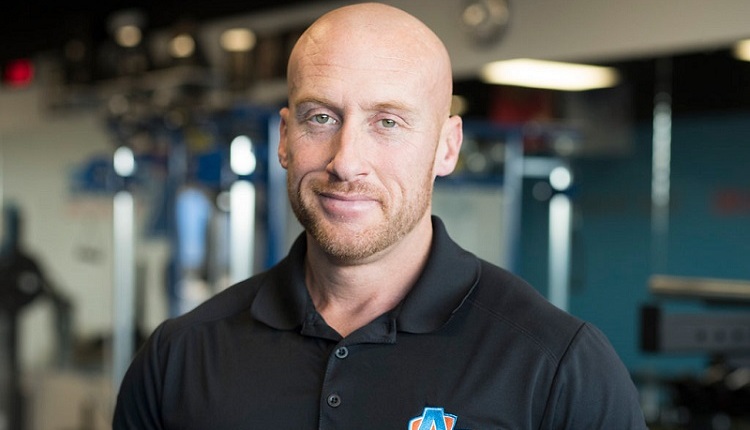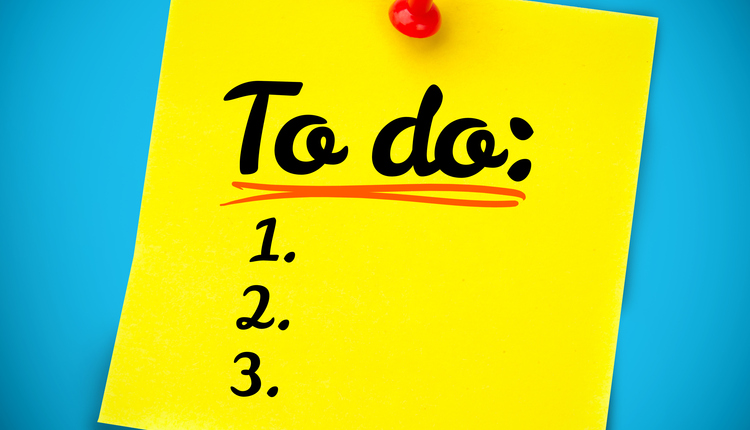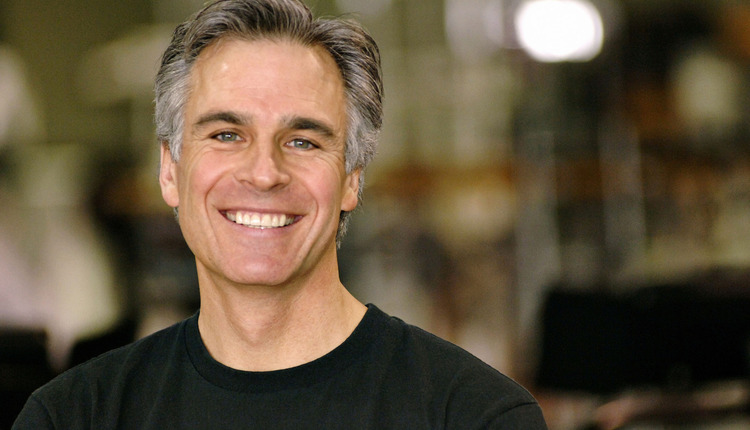The Evaluation
Most personal trainers make the mistake of using the evaluation/assessment as the measurement session and then workout immediately following. The question is: how can you train someone you barely know? A trainer must identify the following before a workout can ever occur:
1. What are the client's goals? You must discuss very specific goals and why those goals are important to them. Never accept the generic "I want to lose weight and tone up." How much weight? 20 pounds? Why 20 pounds and not 25 or 15? Is there something about 20 pounds that is important to them? Is that a weight at which they were most confident? As a trainer, you must ask open-ended questions but all which have a purpose. It is also important that you document your client's answers.
2. What brought the client to joining the gym and/or buying personal training? This will tell you what has motivated them to make this big step. This will also will show the willingness to change their current lifestyle.
3. What is it that will keep them motivated? Is it results? A family member? Achievement? All of the above? Remember people are motivated by different things and for different reasons and as we progress through 12 months the motivating factor often changes. However, we must walk away knowing what is going to keep them coming back for more.
4. What does the client expect? A big question is what the client expects from you as their trainer. This puts the responsibility on the shoulders of the trainer and a clear understanding of expectations. Communication is the key in all relationships. Be sure that the expectations align with your methodology as a fitness professional.
Assessing Change: Willing, Able, Ready?
The above questions all center on motivation and assessing the client's willingness to change their current habits. Exercise is 10% of making a body transformation; nutrition plays the other 90%. However 100% of the credit happens between the ears. We must know where our clients are and how motivated they are to make a change.
1. Willingness: The Importance of Change
Is the client willing to make the necessary changes to create a positive result or attain a goal? Buying membership or a personal training program conveys some willingness to change, however it does not tell the whole story. Asking questions such as, "Given that nutrition is 90% of results how willing are you to make the changes necessary?" or "Tell me how important these goals are to you and rank your willingness to change to achieve them."
2. Able: Confidence to Change
Sometimes a client may be willing to change, but actually feel as though they are not able to change. People often times acknowledge the risk of their behavior and the importance for change, but they don't have the confidence to follow through. Asking questions such as, "How confident are you that you can lose 50 lbs?"â Or change of thought, "You think you can lose 50 lbs, I know you can lose 50 lbs."
3. Ready: A Matter of Priorities
A client can be willing and able but not ready to make a change. For instance, a client can recognize that working out is important to them, but not the most important thing right now. We must establish the client's readiness to make the necessary changes in their life to create results. Often times, support from a trainer/friends/family is all it takes.
Motivational Interviewing Tactics in Summary
1. Talk less than your client does
2. Offer at least two reflections (summarizing what the client just said) for every question that you ask
3. Ask twice as many open questions as closed questions
4. Listen empathically
Client Evaluation Questions
In any situation where it is the first meeting, it is always important to create an environment of comfort for the client. Most clients will feel apprehensive upon meeting their trainer for the first time.
Conversation for your first 5 minutes:
Trainer- "Before we get started, I would just like to get to know you a little better."
Trainer- "How are you doing today? Has your day been good so far?"
Client- "Very well. Just got off work and came straight to the gym."
Trainer- "Very good. Are you excited to get started today?"
Client- "Yes. Just a little intimidated being here."
Trainer- "Completely understandable. I will make sure everything is great and you get the results you are looking for."
Goals
Trainer- "So let's talk about goals. Tell me what goals you were looking to accomplish."
Client- "Well I like to lose 50 lbs and maybe tone up my legs and stomach."
Trainer- "So we are trying to lose 50 lbs and sculpt and tone the lower body and core."
Client- "Yes."
Trainer- "That's great. Why 50 lbs?"
Client- "My doctor told me I needed to lose that much. Plus it seems like a good number."
Trainer- "So you have been to the doctor and he said you needed to lose 50 lbs. That's a good goal to shoot for. Let me ask you this, when was the last time you were 50 lbs lighter?"
Client- "When I was 20."
Trainer- "How did you feel?"
Client- "I felt great!"
Trainer- "You said that with conviction! Do you feel like you felt better about yourself?"
Client- "Yes."
Trainer- "Awesome! I want you to remember that feeling and keep that as a motivating factor as we go through this process."
Important Open-Ended Questions
"Given that nutrition is 90% of results how willing are you to make the changes necessary?"
"Tell me how important these goals are to you and rank your willingness to change to achieve them."
"Tell me how confident are you that you can lose 50 lbs?"
"What is going to keep you motivated to achieve these goals?"
"What do you expect from me as your trainer?"
Josh Bowen, BA, CSCS*D, NSCA-CPT*D is the Quality Control Director of Personal Training for Urban Active. He manages more than 400 personal trainers in six states. To learn more about Urban Active, please visit www.urbanactive.com
Most personal trainers make the mistake of using the evaluation/assessment as the measurement session and then workout immediately following. The question is: how can you train someone you barely know? A trainer must identify the following before a workout can ever occur:
1. What are the client's goals? You must discuss very specific goals and why those goals are important to them. Never accept the generic "I want to lose weight and tone up." How much weight? 20 pounds? Why 20 pounds and not 25 or 15? Is there something about 20 pounds that is important to them? Is that a weight at which they were most confident? As a trainer, you must ask open-ended questions but all which have a purpose. It is also important that you document your client's answers.
2. What brought the client to joining the gym and/or buying personal training? This will tell you what has motivated them to make this big step. This will also will show the willingness to change their current lifestyle.
3. What is it that will keep them motivated? Is it results? A family member? Achievement? All of the above? Remember people are motivated by different things and for different reasons and as we progress through 12 months the motivating factor often changes. However, we must walk away knowing what is going to keep them coming back for more.
4. What does the client expect? A big question is what the client expects from you as their trainer. This puts the responsibility on the shoulders of the trainer and a clear understanding of expectations. Communication is the key in all relationships. Be sure that the expectations align with your methodology as a fitness professional.
Assessing Change: Willing, Able, Ready?
The above questions all center on motivation and assessing the client's willingness to change their current habits. Exercise is 10% of making a body transformation; nutrition plays the other 90%. However 100% of the credit happens between the ears. We must know where our clients are and how motivated they are to make a change.
1. Willingness: The Importance of Change
Is the client willing to make the necessary changes to create a positive result or attain a goal? Buying membership or a personal training program conveys some willingness to change, however it does not tell the whole story. Asking questions such as, "Given that nutrition is 90% of results how willing are you to make the changes necessary?" or "Tell me how important these goals are to you and rank your willingness to change to achieve them."
2. Able: Confidence to Change
Sometimes a client may be willing to change, but actually feel as though they are not able to change. People often times acknowledge the risk of their behavior and the importance for change, but they don't have the confidence to follow through. Asking questions such as, "How confident are you that you can lose 50 lbs?"â Or change of thought, "You think you can lose 50 lbs, I know you can lose 50 lbs."
3. Ready: A Matter of Priorities
A client can be willing and able but not ready to make a change. For instance, a client can recognize that working out is important to them, but not the most important thing right now. We must establish the client's readiness to make the necessary changes in their life to create results. Often times, support from a trainer/friends/family is all it takes.
Motivational Interviewing Tactics in Summary
1. Talk less than your client does
2. Offer at least two reflections (summarizing what the client just said) for every question that you ask
3. Ask twice as many open questions as closed questions
4. Listen empathically
Client Evaluation Questions
In any situation where it is the first meeting, it is always important to create an environment of comfort for the client. Most clients will feel apprehensive upon meeting their trainer for the first time.
Conversation for your first 5 minutes:
Trainer- "Before we get started, I would just like to get to know you a little better."
Trainer- "How are you doing today? Has your day been good so far?"
Client- "Very well. Just got off work and came straight to the gym."
Trainer- "Very good. Are you excited to get started today?"
Client- "Yes. Just a little intimidated being here."
Trainer- "Completely understandable. I will make sure everything is great and you get the results you are looking for."
Goals
Trainer- "So let's talk about goals. Tell me what goals you were looking to accomplish."
Client- "Well I like to lose 50 lbs and maybe tone up my legs and stomach."
Trainer- "So we are trying to lose 50 lbs and sculpt and tone the lower body and core."
Client- "Yes."
Trainer- "That's great. Why 50 lbs?"
Client- "My doctor told me I needed to lose that much. Plus it seems like a good number."
Trainer- "So you have been to the doctor and he said you needed to lose 50 lbs. That's a good goal to shoot for. Let me ask you this, when was the last time you were 50 lbs lighter?"
Client- "When I was 20."
Trainer- "How did you feel?"
Client- "I felt great!"
Trainer- "You said that with conviction! Do you feel like you felt better about yourself?"
Client- "Yes."
Trainer- "Awesome! I want you to remember that feeling and keep that as a motivating factor as we go through this process."
Important Open-Ended Questions
"Given that nutrition is 90% of results how willing are you to make the changes necessary?"
"Tell me how important these goals are to you and rank your willingness to change to achieve them."
"Tell me how confident are you that you can lose 50 lbs?"
"What is going to keep you motivated to achieve these goals?"
"What do you expect from me as your trainer?"
Josh Bowen, BA, CSCS*D, NSCA-CPT*D is the Quality Control Director of Personal Training for Urban Active. He manages more than 400 personal trainers in six states. To learn more about Urban Active, please visit www.urbanactive.com














